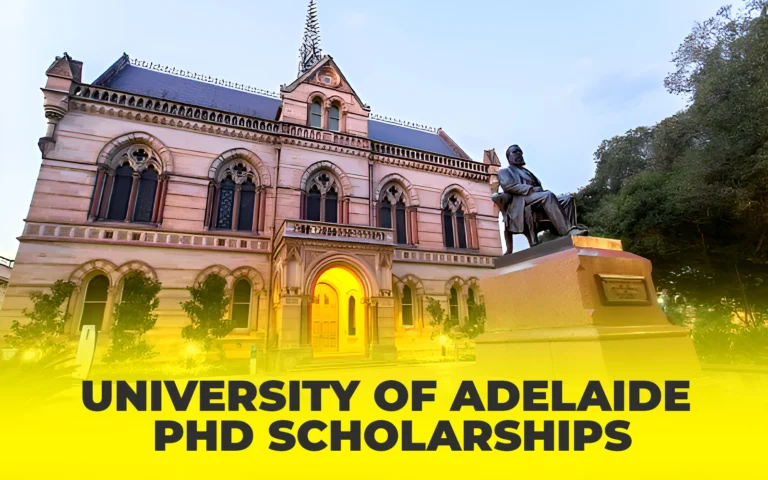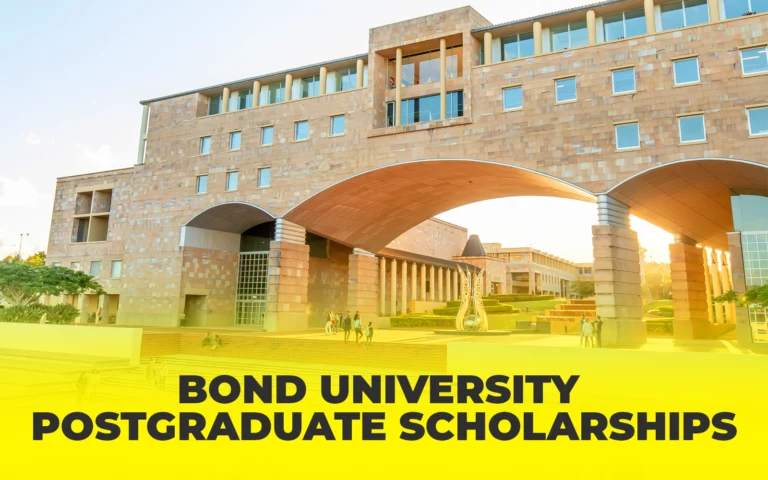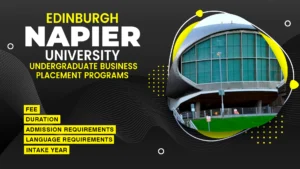International students seeking a unique and affordable study abroad experience may find the Czech Republic to be an ideal alternative. This article discusses various steps you can take to study in the Czech Republic.
Studying English in the Czech Republic
The Czech Republic is well-known for its friendly culture, and several English-language higher education courses are available to attract more foreign students. In 45 universities, there are more than 100 English-language course options. When all the nation’s higher education institutions are considered, there are around 70 universities in the Czech Republic. Because there are many English speakers in the country, it is simpler for foreign students to visit.

Prepare the Paperwork
- The standard documentation that all colleges often need includes a recommendation letter, a letter of motivation, and, if relevant, a portfolio of prior work.
- Universities will also need documentation of completed coursework. To fulfill this criterion, send an official transcript to the university from your former university if you’re pursuing a master’s degree or above or from your secondary school if you’re starting a bachelor’s program.
- You will also need to pass an English proficiency test if you choose to study in the language.
Check Specific Admission Requirements
- In the Czech Republic, each university’s admissions procedure is its responsibility. As a result, entry requirements and dates could change depending on the program and university. Always check the university website to find out the precise prerequisites for admission. If you have any questions, get in touch with us or the relevant office.
- Prospective students in the Czech Republic can apply simultaneously to multiple universities and programs.
Study in the Czech Republic without IELTS
Pursuing education in the Czech Republic without taking the IELTS exam is possible. The alternative option is to take the university-provided language placement test or to appear for the CEFR (Common European Framework of Reference for Languages). To meet the competency requirements for the course, students can enroll in intensive English language programs offered by some universities ahead of time.
Submit Your Application
In the Czech Republic, the majority of university applications are submitted online. Application forms are accessible on the websites of individual universities and frequently call for payment of an application fee. Once the application form is filled out, attach the required documents or get ready to ship them to the university.
Take the Entrance Exam
In the Czech Republic, several programs require applicants to take an entrance exam before admission to the institution. The admission exam consists of a written exam plus an oral interview. The exam is usually administered in the Czech Republic; however, there are several exceptions for students from other countries.
Wait for the decision
Admissions decisions are usually made public by the end of June. If you study a language other than Czech, you must often pay the first semester’s tuition. The university where you will study will send you an official letter of acceptance, an admission confirmation for visa purposes, a student contract, and information about accommodations as soon as they receive your payment.
Studies in the Czech Republic cost
Bachelor’s degree tuition ranges from 1500 to 3500 euros annually, and master’s degree tuition costs range from 2,000 to 5000 EUR annually. This demonstrates that the Czech Republic is an affordable option for overseas students. On the other hand, tuition at private universities is determined by them and might range from 4,000 to 8,000 euros annually. Depending on the university, application fees range from $100 to $200.
Scholarships to Study in the Czech Republic
Under its international assistance campaigns, the Czech Republic’s government provides scholarships to students enrolled in its public universities. The governments offer scholarships to both English language and Czech language courses. Universities also offer scholarships. Scholarships for merit- or need-based studies are available to students in the Czech Republic.
Universities and Colleges in the Czech Republic for International Students
As we have previously said, the Czech Republic is home to around 70 higher education establishments. According to QS World Rankings, nine of its universities are among the best in the world. Charles University, University of Chemistry and Technology, Prague, and Czech Technical University in Prague are the best universities in the Czech Republic. They are all among the top 500. The Czech Republic’s higher education system is over 650 years old, with Charles University being the oldest in the nation, founded in 1348 AD.
Top Courses to Study in the Czech Republic
International students have become used to the Czech Republic’s academic structure, which offers bachelors, masters, and doctoral degrees. Tertiary Professional courses are also available.
However, most overseas students enroll in universities and pursue degree-granting programs, such as bachelor’s, master’s, and doctoral degrees. Any field of your interest can be your choice.
- Agriculture, Forestry, Fisheries, and veterinary
- Business, administration, and Law
- Engineering, Manufacturing, and Construction
- Health and Welfare
- Natural sciences, mathematics, and statistics
- Social Sciences, Journalism, and information
- Arts and humanities
- Education
- Information and Communication Technologies (ICTs)
Czech Republic Student Visa
There are short-term visas (up to 90 days) and long-term visas (more than 90 days) for international students. Students should apply for a Student Visa at their nearest embassy or consulate. The processing time for a Czech student visa is 60 days, so students are advised to apply for a visa in advance. Students who are planning to stay in the Czech Republic for more than a year will also need a residence permit for study purposes.
Visa fees
Long-Term Visa (type D), CZK 2500
Study and Work in the Czech Republic
Students enrolled in a university for higher education may work part-time jobs. During the summer break, students can work in full-time jobs. Part-time employment has a weekly time limit of twenty hours. The part-time job shouldn’t impact the studies in any way. Students can use these professions to assist in paying for their university tuition and daily living expenses.
Stay Back Option in the Czech Republic
After graduating from university, students are eligible for a one-year work visa in the Czech Republic. However, before their program with the institution finishes, non-EU students are recommended to hunt for a permanent job in the Czech Republic. After earning a bachelor’s degree, a student may apply for a master’s program or another higher level of study. The students must demonstrate that they have obtained a permanent position that suits their qualifications and work location.
Appointments
Most consular services, including the filing of visa applications, need appointments. Requests for appointments should be addressed by email to a specific address. For all other correspondence, including questions about appointments, please contact islamabad.consulate@mzv.gov.cz.
Or
Schedule your appointment with us for the further process.
Requirements And Supporting Documents
- Application form with the applicant’s signature.
- A passport that is still valid (at least two blank pages and good for three months after the traveler returns to Pakistan or Afghanistan).
- Two color photographs (3.5 x 4.5 cm format, white background).
- A consent of parents or legal guardian if the applicant is a minor.
- A Proof of the purpose (varying according to the purpose – e.g., letter of admission to the study program according to §64 of Act No. 326/1999, marriage certificate, birth certificate).
- A national legalization certificate from the Czech Ministry of Foreign Affairs or the Czech Embassy must already be attached to a document establishing the family’s stay, such as a marriage certificate or birth certificate, for it to be legally recognized for use abroad.
- A certification of a natural or legal person with an officially verified signature, an original or certified copy of the accommodation contract, or a rental contract, serving as proof of accommodations for the duration of the stay in the Czech Republic
- a proof of funds (international debit card, bank statement for the previous six months)
- An official translation into Czech is available as an extract from the Pakistani Criminal Register records.
- The Czech Embassy in Islamabad requires applicants to produce an extract of the nation’s records in which they have resided for more than six months in the last three years, in compliance with § 31 of Act No. 326/1999. If the nation does not provide such a document, an affidavit in both Czech and English must be used.
- For Afghan nationals, there is no requirement to provide an extract from the Afghan Criminal Register; instead, they must submit an affidavit in Czech and English.
- Upon request from the Embassy, a record attesting to the fulfillment of the requirements outlined in the Ministry of Health’s measure on the prevention of infectious disease transmission
- travel medical insurance after the application is approved
Please prepare a set of copies of all the necessary paperwork, as requested by the Embassy.
Visa fees: Long-Term Visa (type D), CZK 2500
Why Study Abroad Updates
We are your one-stop website for everything related to studying abroad. Our website is made to give you all the information you need to have a fun and easy path toward studying abroad. We can assist you whether you’re seeking for the best places to study, the newest scholarships, or university rankings. Get in touch with us for individualized advice, or view our videos to learn more about the university of your dreams. Our Study Abroad Genie is available around the clock to help you at every stage. Take the first step toward reaching your objectives by starting your study abroad journey with us right now. Get the most recent opportunities, professional advice, book a free session and chat with us at every time in just one click.




















